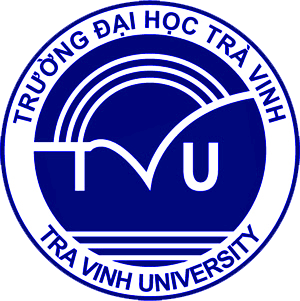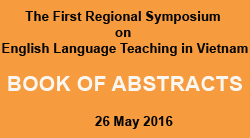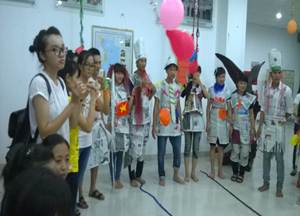
TRA VINH – 2.6.2014. After all the hardworking (and working hard) during the two terms, nearly 80 participants of the English Speaking Club met on the night of 25 May in the Administration Building for the last meeting before the summer vacation.
The night commenced with the recognition of 10 Club’s members who greatly contributed to the Club’s success during the academic year.
Ms. Huynh Do Thu, Club Advisor and deputy head of English Department, said: “We are about to end another academic year. If ESC is the English speaking zone for every participant to practice their English, ESC members have wholeheartedly built and maintained it during the year.” The Club welcomed two volunteers from Canada to spice up the activities, and all had a lot of fun time together with team competition on three-legged balloon poping.
The Club welcomed two volunteers from Canada to spice up the activities, and all had a lot of fun time together with team competition on three-legged balloon poping.
We were also entertained by a students-led fashion show. By the eight o’clock, the lobby in the building was already very busy.
ESC has played an important role in helping students develop their language and interpersonal skills. It’s a great fun and learning environment for anyone to be in.
ESC will take a break in the summer vacation and start meeting again in the autumn. We all hope to have more new members with us.
Members regconized for their contribution and efforts
Final Year Students (DA10AV):
Tran Thi Diem Trang, Nguyen Ngoc Thien Nhi
Nguyen Be Don, Ngo Thi Cam Tien, Thach Thi Hong Thao, Huynh Thi Kim Ngan
Third Year Students (DA11AVBPD):
Trieu To Hoa, Vo Thi Thuy Duong, Thach Tha Ri, Nguyen Thi My Tu






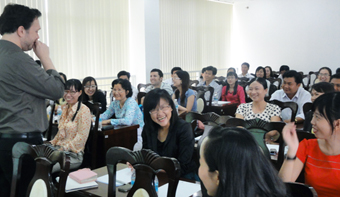

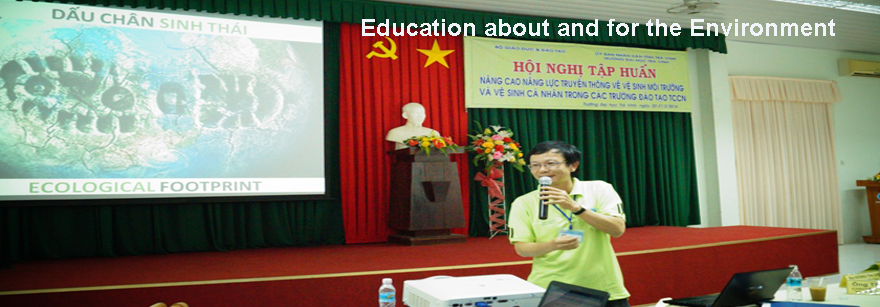
 “The Senior Management of TVU is fully committed to environmental sustainability, and very much welcomes today's workshop which should help us continue to find ways for improved green campus action plans in our university and the local community,” TVU’s Vice-Rector Nguyen Tien Dung noted at the opening of the workshop.
“The Senior Management of TVU is fully committed to environmental sustainability, and very much welcomes today's workshop which should help us continue to find ways for improved green campus action plans in our university and the local community,” TVU’s Vice-Rector Nguyen Tien Dung noted at the opening of the workshop. 